Categories: Undergraduate Courses
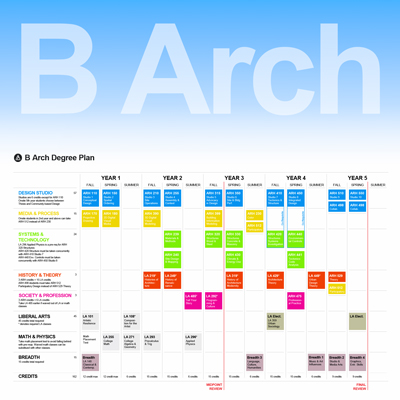
Undergraduate Curriculum Map
Undergraduate Curriculum Maps The project-based undergraduate programs are built on a foundation in fundamental design, ethical awareness, and liberal arts. In the upper division, students are empowered through engagement with the profession within and beyond the classroom through a rich array of field trips, firm visits, networking events, and internship opportunities. Our rigorous design…
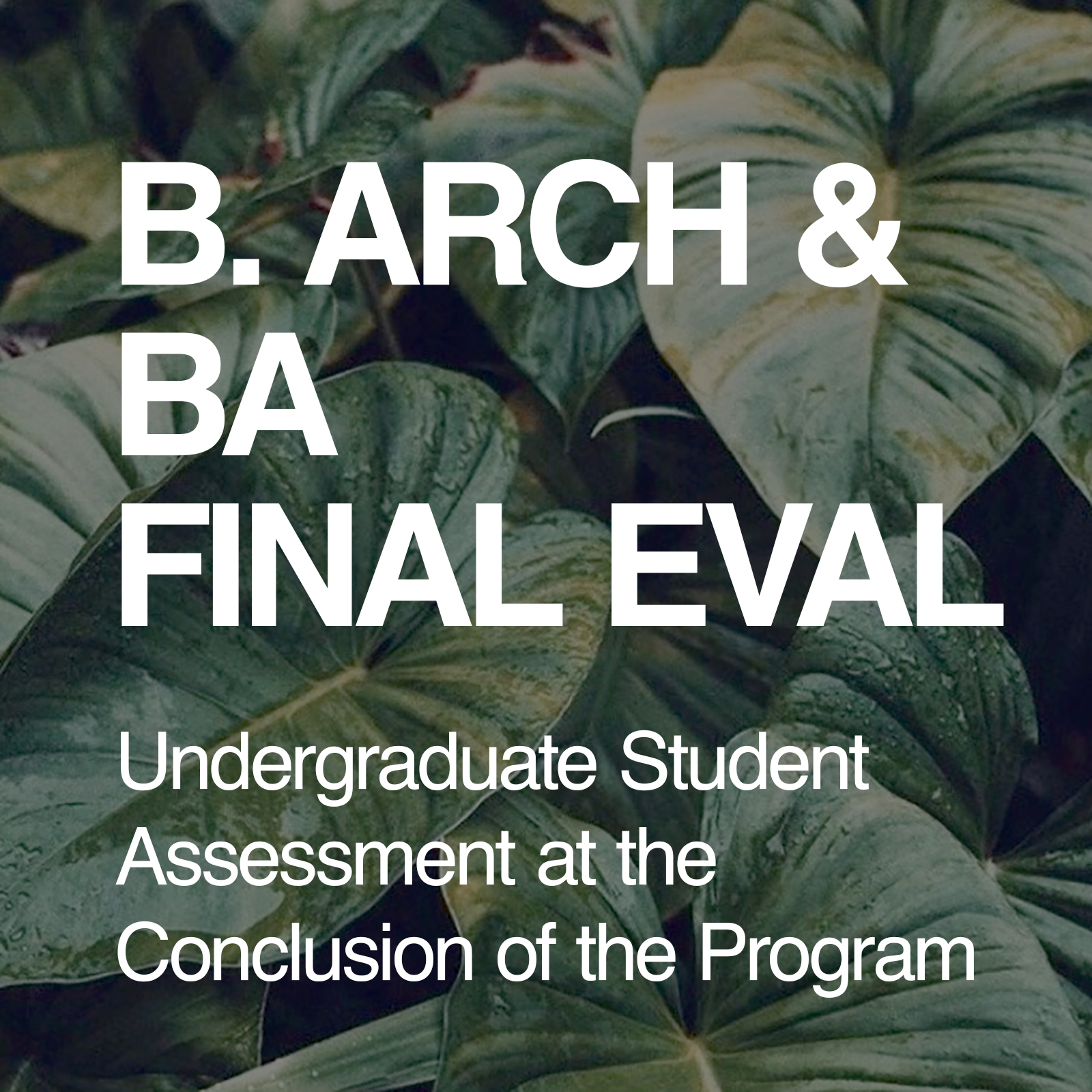
Final Evaluation for Graduating B. Arch and BA Students
Final Evaluation for Graduating B. Arch and BA Students At the conclusion of the undergraduate program, all students receive individualized guidance through an assessment event called the Final Evaluation. The culminating studio project is typically reviewed for the assessment. For B. Arch students, this will be the ARH 498 or ARH 550 project. For…

Undergraduate Midpoint Check-In
Undergraduate Midpoint Check-In The purpose of the Midpoint Check-In is for us to get to know you as you conclude your first five design studios. We invite you to tell us about yourself, reflect on your progress, share your ambitions, and seek support. Your department directors and faculty members will review your work and…
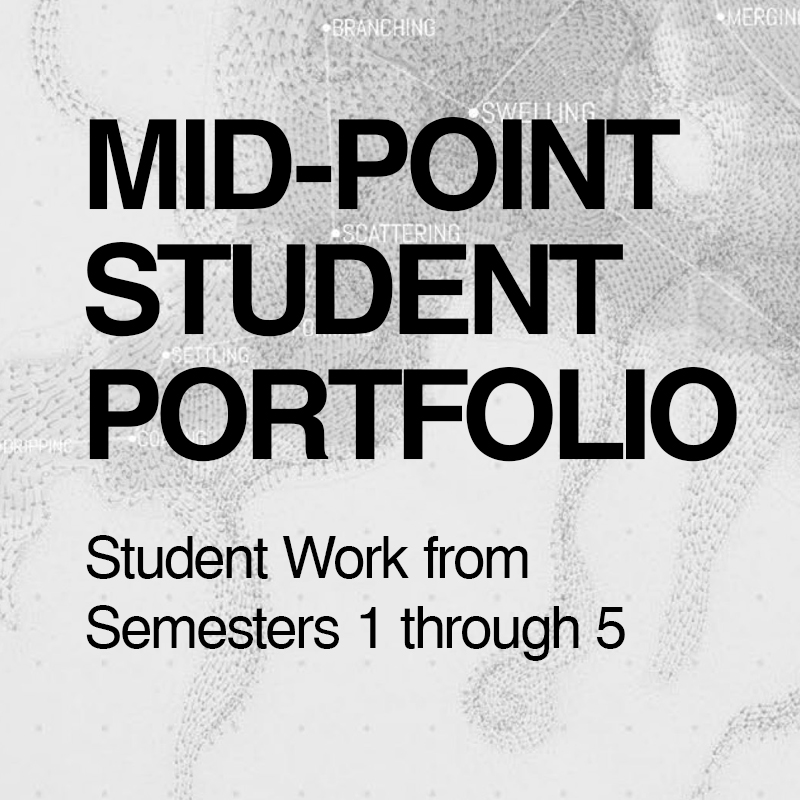
Mid-Point Student Portfolios
Mid-Point Review The purpose of the Undergraduate Mid-point Review is to provide students with an opportunity to reflect on their own progress, as well as to receive feedback, as they conclude the first 5 semesters of the program. The department directors and faculty members will review student portfolios to personalize their class advisements based…
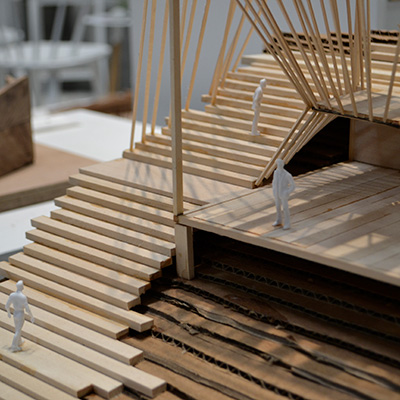
ARH 110 Studio 1 Conceptual Design Studio
ARH 110 STUDIO 1 CONCEPTUAL DESIGN STUDIO Learn design principles for creating spaces for people. You will utilize design, methodology, and space-making principles to gain fundamental knowledge and skills in environmental design, and prepare for future architecture and landscape architecture studios. Prerequisites: ARH 170 and on campus English as a second language students must…
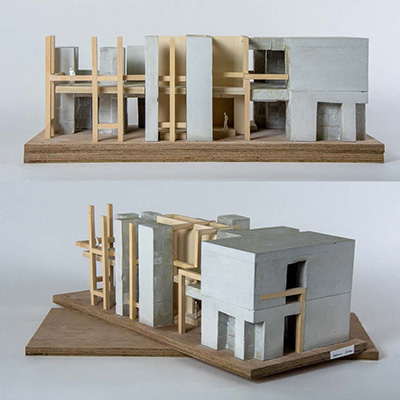
ARH 150 STUDIO 2 SPATIAL ORDERING & FORM
ARH 150 STUDIO 2 SPATIAL ORDERING & FORM Develop your critical design decision-making abilities through experimentation. You will research and analyze a case study project, identify key spatial ideas and incorporate these ideas through an iterative process of model-making, diagramming, and drawing for small scale projects. This course is a second-semester undergraduate design studio…
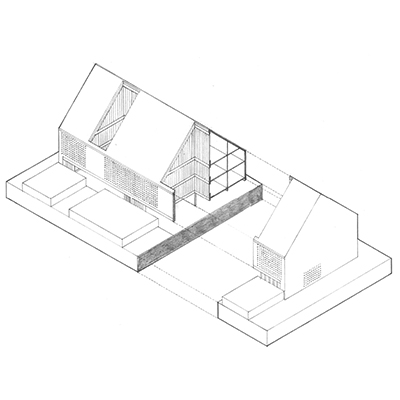
ARH 170 Projective Drawing & Perspective
ARH 170 Projective Drawing & Perspective Practice rigorously constructed architectural drawings to develop three-dimensional thinking and communication skills. You’ll learn to use line and composition techniques to articulate details that reinforce the building design and help you communicate design intent. Course Learning Outcomes Apply measurement and scale in a variety of drawing types,…
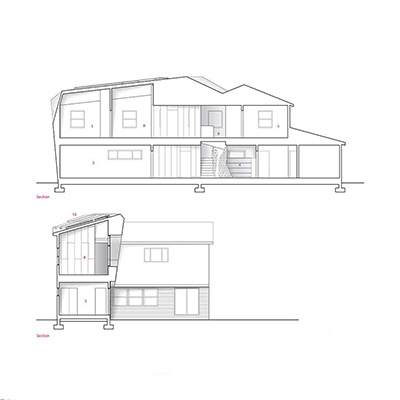
ARH 180 2D Digital Visual Media
ARH 180 2D Digital Visual Media Learn to make digital images and architectural drawings. Using industry software, lectures information, case studies, and tutorials, you will create digital collages, diagrams and drawings to represent an idea. Prerequisites: ARH 150 (may be concurrent) Featured Image Courtesy Of: Open Source Architecture Course Learning Outcomes Create visuals…
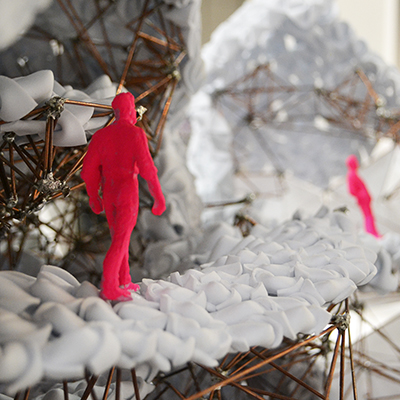
ARH 210 STUDIO 3 SITE OPERATIONS & TECTONIC SYSTEMS
ARH 210 STUDIO 3 SITE OPERATIONS & TECTONIC SYSTEMS Expand your design process. The catalysts for the examination of your design will come from beyond the architectural norms. You will develop two- and three-dimensional drawings and models based on specific methods of rule-driven design, and learn the behavioral aspects of space and structure. This…
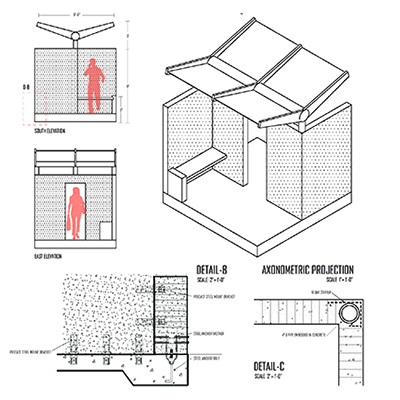
ARH 239 Materials & Methods
ARH 239 Materials & Methods Material choices are design decisions. You’ll evaluate the unique properties and construction methods of materials, including the social constructs, environmental impacts, and design opportunities they provide. Prerequisites: ARH 150 & LA 107 or LA 108 Featured Image: Francisco Gonzalez Course Learning Outcomes Select appropriate materials and create detailed…
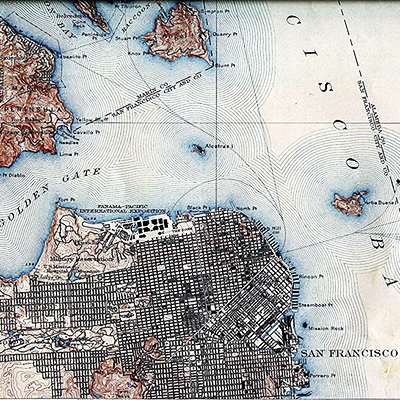
ARH 240 Site Design & Mapping
ARH 240 Site Design & Mapping Experience the dynamic interdisciplinary nature of site design. Taking physical characteristics, regulatory parameters, accessibility, and sustainable design principles into consideration, you’ll develop a site design that combines your skills and understanding of topography, landscape, and urban design. Prerequisites: ARH 170 and one of the following: ARH 180 or…
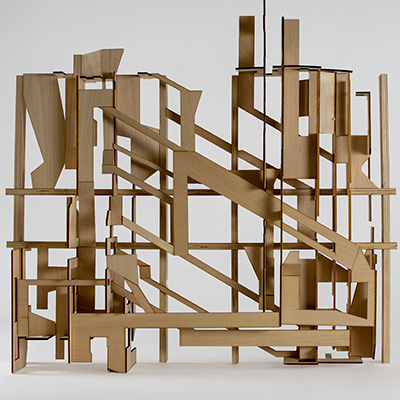
ARH 255 STUDIO 4 ASSEMBLY BUILDING & CONTEXT
ARH 255 STUDIO 4 ASSEMBLY BUILDING & CONTEXT Theaters are cultural institutions for collective story-telling. Design a theater by developing a critical viewpoint on the role of society, community, and culture. You will develop a design methodology through the analyses of the site as well as a cultural artifact. Iterative use of hand drawing,…
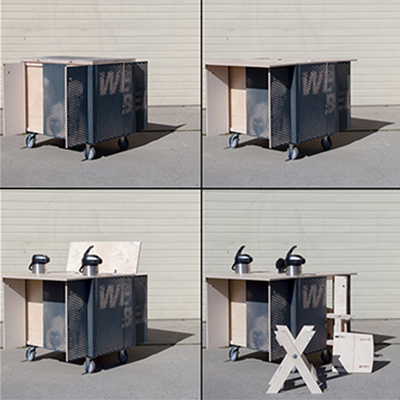
ARH 315 Studio 5 Advocacy in Design
ARH 315 STUDIO 5 ADVOCACY IN DESIGN Take a stance on the role of architecture in our urban environments. Through the design of a public building, you’ll advocate for and engage with under-served communities. Your honest inquiry of the urban fabric and the diversity of its inhabitants will create a responsive, empathetic program and…
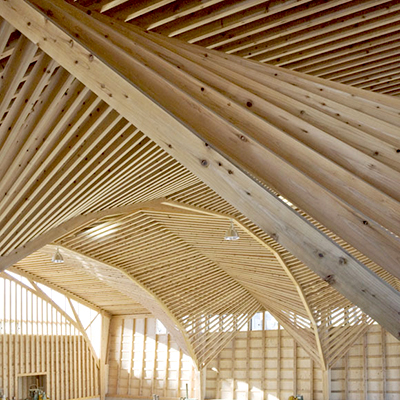
ARH 320 Structures: Wood & Steel
ARH 320 Structures: Wood & Steel Collaboration between architects and structural engineers determines the success and safety of a building. Seeing architecture from the perspective of a structural engineer, you will evaluate the unique properties of wood and steel, common structural materials in the US, in response to gravity and lateral forces. Prerequisites: ARH…
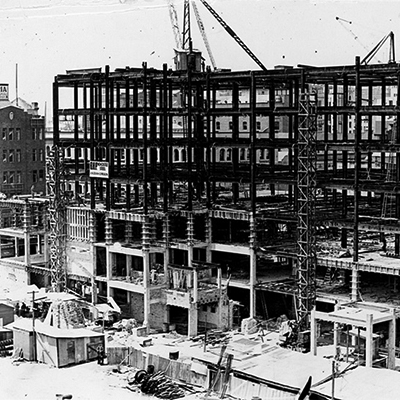
ARH 330 Structures Concrete, Masonry, & Tensile Systems
ARH 330 Structures Concrete, Masonry, & Tensile Systems Knowledge of a range of structural systems is required for architects. You’ll learn about the specific load bearing properties of concrete, masonry, and tensile systems through real-world applications and scenarios. Prerequisites: ARH 320 Featured Image: Queensland Government Offices 1931 Course Learning Outcomes Analyze the properties…
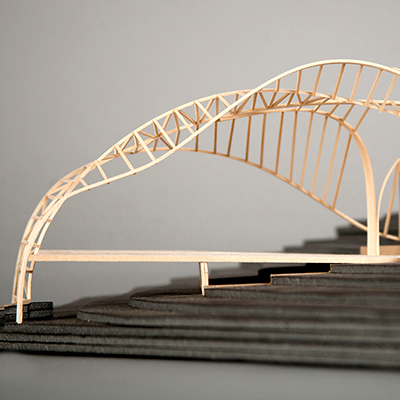
ARH 350 Studio 6 Site Conditions and Building Performance
ARH 350 STUDIO 6 SITE CONDITIONS AND BUILDING PERFORMANCE Design a visitor’s center attuned to its natural habitat and historical context. Physical site environments provide opportunities for design synthesis and responsible energy use. You will incorporate passive design principles in response to climate, orientation, topography, vegetation, views, building materiality, and constructability. Prerequisites: ARH 399…
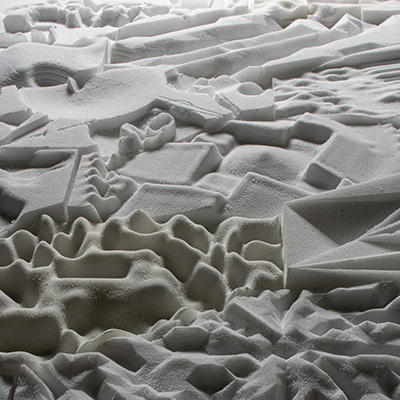
ARH 390 3D Digital Modeling
ARH 390 3D Digital Modeling What if you could develop and represent your architectural idea at the same time? You will learn the software and techniques used in architecture and design offices to make 3D models, 2D drawings, renderings, books, and presentation boards that together tell a story. Prerequisites: ARH 150 & ARH 180…
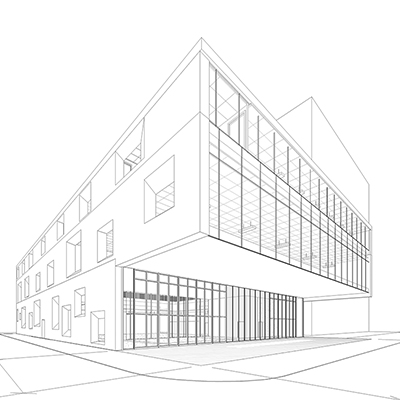
ARH 399 Building Information Modeling
ARH 399 Building Information Modeling Become confident using industry-standard Autodesk Revit to design a building. You will learn to create technical drawings and presentation images, and learn the basic principles of compiling and organizing a construction drawing set. Prerequisites: ARH 239, ARH 255, ARH 390 Featured Image: Daniel Lee Course Learning Outcomes Construct…
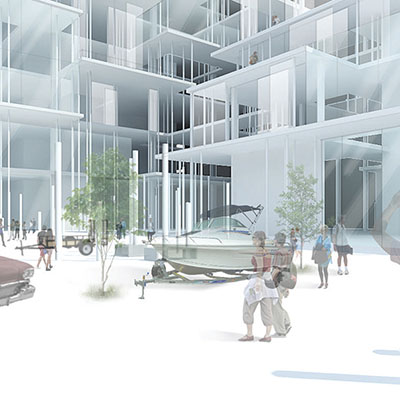
ARH 410 STUDIO 7 TECTONICS AND STRUCTURE
ARH 410 Studio 7 Tectonics and Structure Architecture is a reflection of contemporary culture. You will question preconceptions to find outdated modes of inhabiting space and discover new program relationships, spatial conditions, and rich tectonic expressions. You must take this course concurrently with ARH 420. This course posits new ways to inhabit large urban…
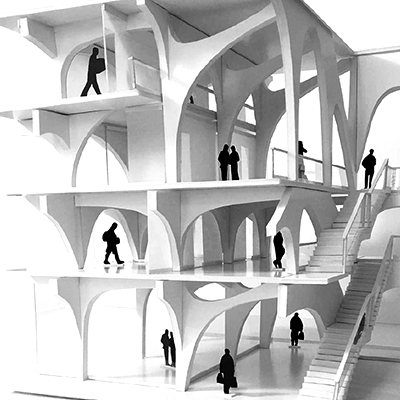
ARH 420 Structures: Systems Investigation
ARH 420 Structures: Systems Investigation Develop your structural intuition by breaking physical models. Working with a structural engineer and an architect, you will invent a structural system for your studio project that is integral to the architectural design identity, and compare structural behaviors of different building geometries using load path diagrams. You must take…
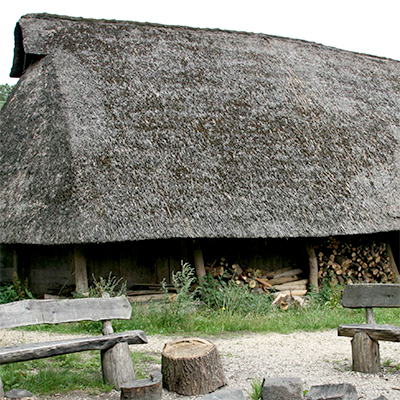
ARH 430 Climate & Energy Use: Sustainable Strategies
ARH 430 Climate & Energy Use Sustainable Strategies Learn passive and innovative strategies to minimize a building's aggressive energy and resource consumption. You’ll examine the benefits of renewable resources and well-building design, focusing on best practices revealed both in vernacular architecture and forward-thinking contemporary design case studies. Prerequisites: ARH 315 Featured Image: Dutch Farm…
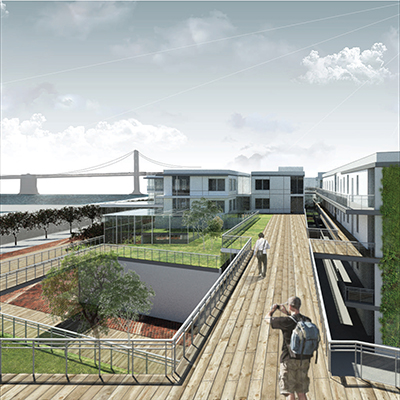
ARH 450 Studio 8 Housing and Integrated Design
ARH 450 STUDIO 8 HOUSING AND INTEGRATED DESIGN Housing is an essential function that architects provide. Collaborating as a team, you will design a multi-family housing complex for an urban site including an architectural proposal that integrates building systems and sustainable strategies. Plus, you’ll incorporate input from expert architects, engineers, and consultants. Take this…
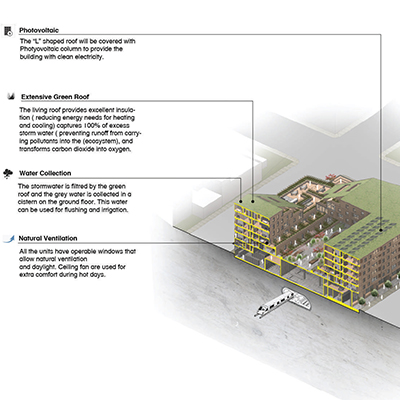
ARH 440 Building Systems: Mechanical, Electrical & Plumbing
ARH 440 Building Systems: Mechanical, Electrical & Plumbing Investigate the critical relationship between energy and the built environment. You will learn to make educated design decisions based on the inter-connectedness of building shape, climate, occupant comfort, thermal envelope, conditioning and lighting systems, acoustics, and building energy consumption. (This course is cross-listed with ARH 605)…
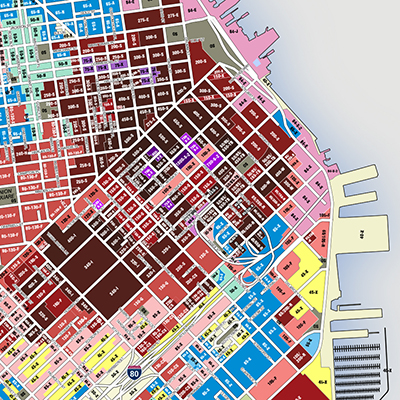
ARH 441 Tectonics: Code Analysis & Building Envelope Documentation
ARH 441 Tectonics: Code Analysis & Building Envelope Documentation Buildings must be designed to keep people safe. You will develop building floor plans that comply with planning and building codes with an emphasis on egress and accessibility and evaluate a building envelope design proposal on costs, material choices, and construction assembly. Feature Image Courtesy…
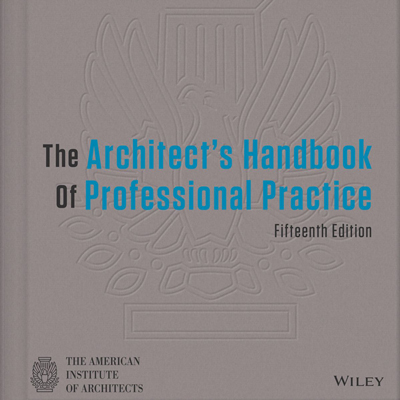
ARH 475 Professional Practices for Architects
ARH 475 Professional Practices for Architects Gain the legal and business knowledge to successfully transition into the architecture profession. You will examine contractual relationships among stakeholders, licensure process, organizational structures, ethics, business development, compensation, insurance, and the importance of mentorship. Featured Image Courtesy Of: AIAS Course Learning Outcomes Utilize methods of project management…
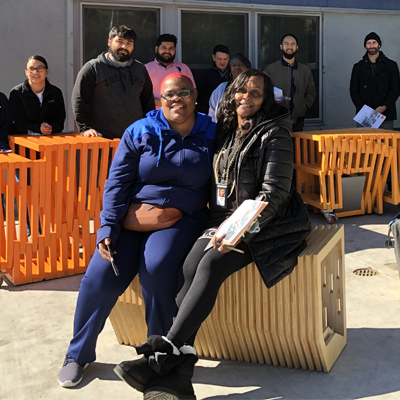
ARH 498 Collaborative Project / ARH 512 Participatory Design
ARH 498 Collaborative Project & ARH 512 Participatory Design ARH 512 & 498 comprise the Community-Based Design program at the School of Architecture. You will design and build a real project for actual occupants that you will have met through the community outreach process. By the end of the sequence, you will have taken…
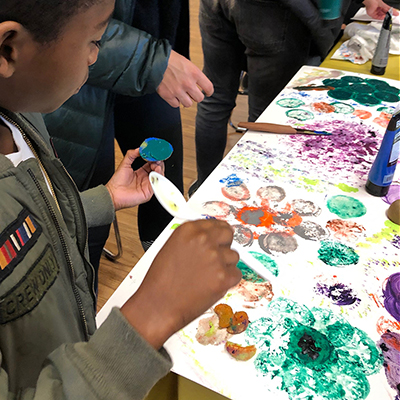
ARH 512 Participatory Design
ARH 512 Participatory Design Participatory Design is key to creating equity. Working with residents and community, you will develop tools for collaborative decision-making that address the needs of diverse users by putting your communication techniques, design skills, and research methodologies into practice in a real-life project. For more information, visit the B. Lab…
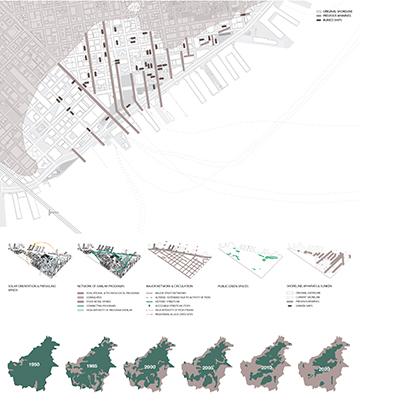
ARH 510 Studio 9 Mixed Use Urbanism & Research
ARH 510 STUDIO 9 MIXED USE URBANISM & RESEARCH Cultivate your point of view using architecture as a lens. You’ll conduct research-driven architectural investigations to identify your thesis topic, develop your architectural language, and use site and demographic analysis as design criteria for the final thesis project in the subsequent semester. Prerequisites: ARH 450, LA…
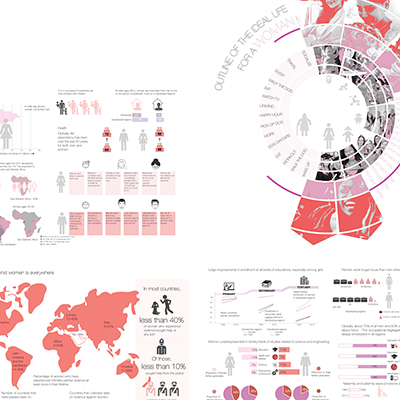
ARH 529 From Theory to Practice
ARH 529 From Theory to Practice How do architects make the leap between theoretical interests and design projects? You will analyze the ideas and techniques of architects whose work operates between theory and practice and position your own thesis work in relation to the key themes of program, structure, and form. Course Learning Outcomes …
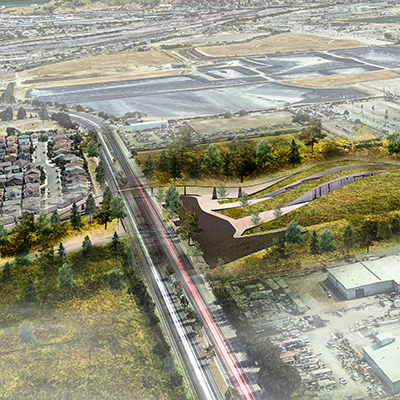
ARH 550 Studio 10 Final Thesis Project
ARH 550 Studio 10 Final Thesis Project Architects can be agents of change. With the guidance of faculty, you will select a unique site and program to test your thesis and address topics that matter to you. Through your architectural response, you’ll challenge the status quo and envision new opportunities for architecture to solve…
